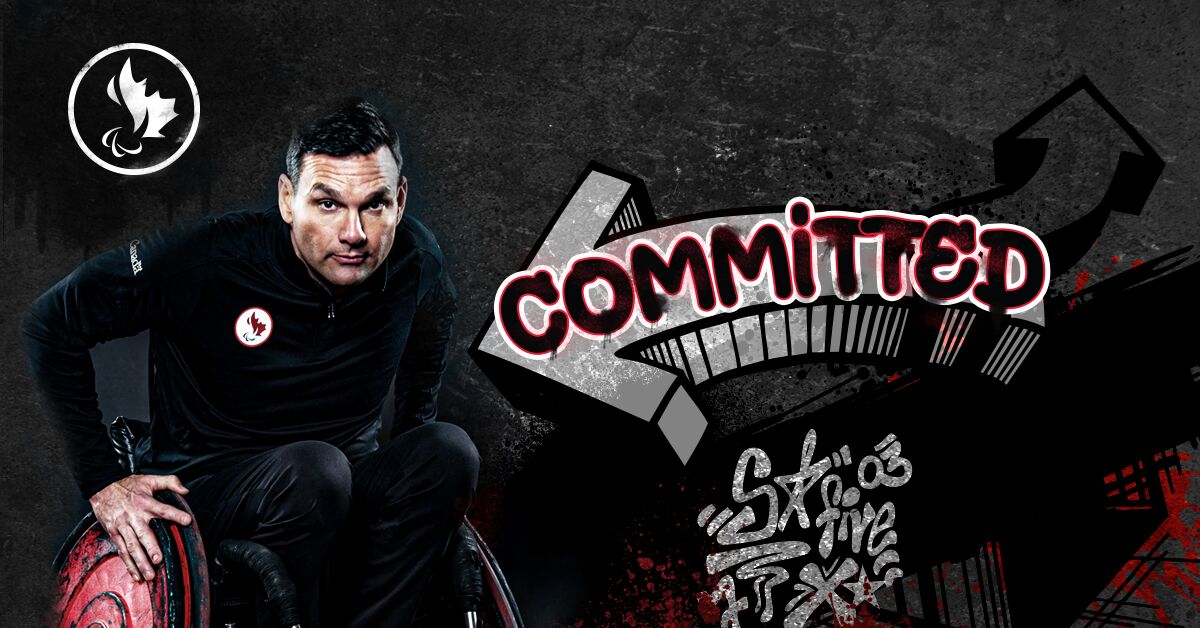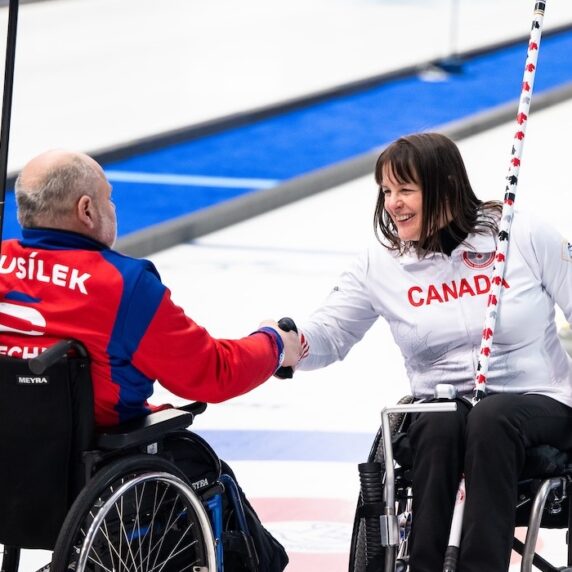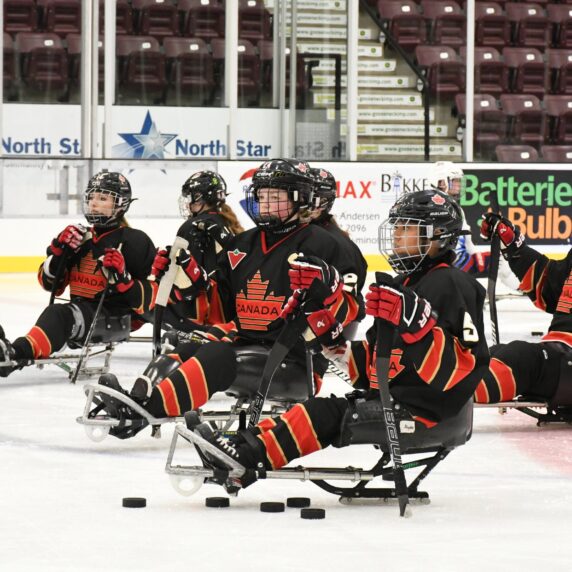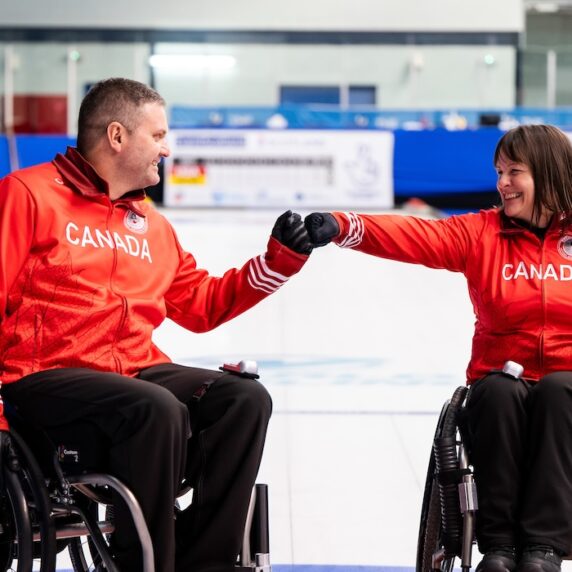Mike Whitehead provides veteran leadership through crisis
“As usual the wheelchair rugby community comes together and keeps an eye on each other.”

Mike Whitehead, a veteran player on Canada’s wheelchair rugby team, saw his drive for five consecutive Paralympic Games appearances stalled with the postponement of Tokyo 2020 due to the coronavirus pandemic.
While that won’t likely derail his career, he had been excited about the Games because Canada started the year off so well with its victory in early March at the Paralympic Games qualifier in Richmond, B.C.
“We had prepared for years for that moment,” said Whitehead in an interview with Benoit Huot. “As a team we came together on the bench and on the floor and our staff as usual hit a home run. We had fun.”
It was only a few days after that tournament that the 44-year-old from Windsor, Ont., was self-quarantining at his home in Hollis, New Hampshire where his wife works and his children go to school.
“We’re lucky to live in a state that acted quickly,” said Whitehead, who has a spinal cord injury from a car crash at age 24. “Things were happening by the hour and they pulled the plug on everything really quickly. By the Thursday, the schools were closed and the kids were getting homework and my wife had to cancel some business trips.”
The Canadian team is keeping in touch throughout this crisis and developing programs for the players to maintain their fitness levels.
“Our head coach Patrick Côté called two days ago and we had a great chat,” said Whitehead. “We are going to get back to some video sessions and some structure that’ll fire back up soon. We also have group chats with the players where we’re just goofing around like we’re in the locker room.
“As usual the wheelchair rugby community comes together and keeps an eye on each other.”
Whitehead says plans are in place to help the players negotiate this change in routine but admits the level of stress is different for each player.
“Our staff has put together a really strong mentorship program,” he said. “I’ve been working with a younger athlete who was headed to his fist Paralympics. Now he is in a totally different situation than me. His spot on the team could be up for grabs, there’ll probably be new tryouts and he’s just moved out on his own.
“He’s in a totally different headspace. But we’re communicating, he’s active and he’s doing fine.’’
That kind of commitment to the team should help Canada regain its traction quickly once the coast is clear to come together again for the Paralympic Games challenge.




"*" indicates required fields